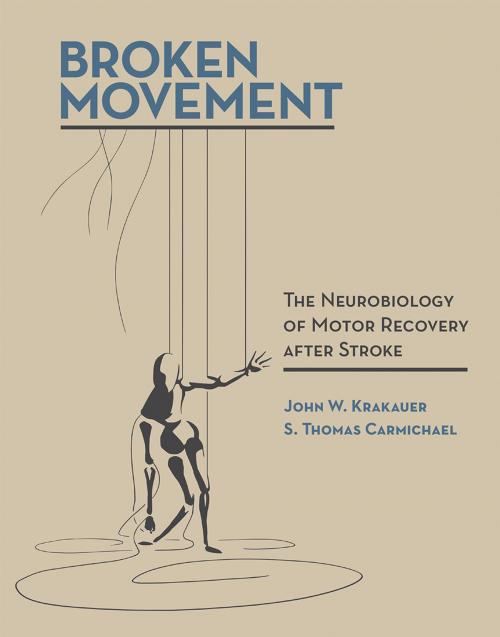Broken Movement
The Neurobiology of Motor Recovery after Stroke
Nonfiction, Health & Well Being, Medical, Specialties, Internal Medicine, Neuroscience, Science & Nature, Science, Biological Sciences| Author: | S. Thomas Carmichael, John W. Krakauer | ISBN: | 9780262343978 |
| Publisher: | The MIT Press | Publication: | November 9, 2017 |
| Imprint: | The MIT Press | Language: | English |
| Author: | S. Thomas Carmichael, John W. Krakauer |
| ISBN: | 9780262343978 |
| Publisher: | The MIT Press |
| Publication: | November 9, 2017 |
| Imprint: | The MIT Press |
| Language: | English |
An account of the neurobiology of motor recovery in the arm and hand after stroke by two experts in the field.
Stroke is a leading cause of disability in adults and recovery is often difficult, with existing rehabilitation therapies largely ineffective. In Broken Movement, John Krakauer and S. Thomas Carmichael, both experts in the field, provide an account of the neurobiology of motor recovery in the arm and hand after stroke. They cover topics that range from behavior to physiology to cellular and molecular biology. Broken Movement is the only accessible single-volume work that covers motor control and motor learning as they apply to stroke recovery and combines them with motor cortical physiology and molecular biology. The authors cast a critical eye at current frameworks and practices, offer new recommendations for promoting recovery, and propose new research directions for the study of brain repair.
Krakauer and Carmichael discuss such subjects as the behavioral phenotype of hand and arm paresis in human and non-human primates; the physiology and anatomy of the motor system after stroke; mechanisms of spontaneous recovery; the time course of early recovery; the challenges of chronic stroke; and pharmacological and stem cell therapies. They argue for a new approach in which patients are subjected to higher doses and intensities of rehabilitation in a more dynamic and enriching environment early after stroke. Finally they review the potential of four areas to improve motor recovery: video gaming and virtual reality, invasive brain stimulation, re-opening the sensitive period after stroke, and the application of precision medicine.
An account of the neurobiology of motor recovery in the arm and hand after stroke by two experts in the field.
Stroke is a leading cause of disability in adults and recovery is often difficult, with existing rehabilitation therapies largely ineffective. In Broken Movement, John Krakauer and S. Thomas Carmichael, both experts in the field, provide an account of the neurobiology of motor recovery in the arm and hand after stroke. They cover topics that range from behavior to physiology to cellular and molecular biology. Broken Movement is the only accessible single-volume work that covers motor control and motor learning as they apply to stroke recovery and combines them with motor cortical physiology and molecular biology. The authors cast a critical eye at current frameworks and practices, offer new recommendations for promoting recovery, and propose new research directions for the study of brain repair.
Krakauer and Carmichael discuss such subjects as the behavioral phenotype of hand and arm paresis in human and non-human primates; the physiology and anatomy of the motor system after stroke; mechanisms of spontaneous recovery; the time course of early recovery; the challenges of chronic stroke; and pharmacological and stem cell therapies. They argue for a new approach in which patients are subjected to higher doses and intensities of rehabilitation in a more dynamic and enriching environment early after stroke. Finally they review the potential of four areas to improve motor recovery: video gaming and virtual reality, invasive brain stimulation, re-opening the sensitive period after stroke, and the application of precision medicine.















